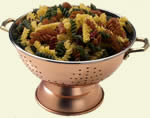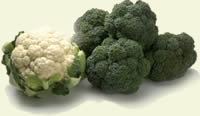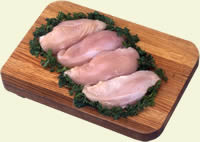|
To view Dr. Laurie Mischley's information pamphlet on the diet, in pdf format, click here. |
About the Swank Low-Fat Diet for the Treatment of MS. THE DIET 60 years ago Dr. Roy Swank discovered that a low-fat diet, very low in saturated fats and polyunsaturated oils, helps MS patients live healthy and productive lives. Also low in red and other fatty meats, high in grains, fruits and vegetables, it is simple to follow and in many cases alleviates chronic symptoms. Some of his very first patients are still ambulatory and leading independent lives thanks to following Dr. Swank's regimen for the last half-century. There was a time – say, around the time your great-great-grandparents (give or take a great) were around – when if we ate bread, we knew the person who grew the wheat. We were, after all, an agrarian society. As industrialization overtook the farming lifestyle, the population moved from the country and in many cases became wealthier as city economies boomed. We began to eat more meat and the fat content of our diet increased rapidly. The food industry became industrialized, and heavily processed foods grew to dominate the U.S. food supply. (We sadly note this occurring in China and India today.) With this rise in fat consumption, ills like heart disease, high blood pressure, diabetes, cancer, rheumatoid arthritis, and multiple sclerosis have also risen to affect more and more of the population. For the most benefit, the Swank MS Foundation advocates adoption of the diet as soon as possible after MS is diagnosed. Hand-in-hand with the diet are other important ingredients to living a healthy life: adequate rest, reduced stress, and an optimistic, attitude that having MS is above all a call to live life to its best and fullest. Adopting the Swank MS Diet may at first seem to require much discipline and dedication, but after an initial adjustment period it will be second nature as any diet. But about 60 years and thousands of healthy lives later, Swank's discovery has proven to be physically rewarding and surprisingly easy to follow. See our Message Board and Personal Stories pages to see for yourself! Besides the classic Swank MS Diet outlined by Dr. Swank and Barbara Dugan in The Multiple Sclerosis Diet Book, new research has inspired variations on the classic diet. Keep reading for a more in-depth look at the classic Swank MS Diet regimen and keep in touch with new information. DAIRY PRODUCTS.All dairy products must be non-fat or contain no more than 1 gram of saturated fat per serving. The recommended daily amount is two (2) servings. (1 cup = 1 serving) The following foods are permissible in any amount:
It is not necessary to count the small amount of fat or oil found in the grains, cereals, rice and pastas in your diet. The recommended daily amount is four (4) servings. GRAINS & CEREALS. You are encouraged to use whole-grain products as much as possible. Refined, un-enriched products provide very little, if any, vitamin source. All bread products are permissible. This includes white bread, whole wheat bread, sourdough bread, English muffins, bagels and all the other grain breads available. The natural grains provide bulk in the diet and aid in elimination. Although these products may contain a small amount of saturated fat, it has been accounted for in the body of the diet. Avoid items such as muffins containing an undesirable oil, pastry, cakes, pies or any other product made with hydrogenated palm or coconut oil, lard, butter, margarine, shortening or vegetable oil that is not defined. Cold and hot cereals are permissible on the diet. The most economical are usually the ones with the least amount of saturated fat. Cheerios®, shredded wheat, Wheaties®, puffed rice and Grape Nuts® are almost fat-free and less expensive. Watch granola; it is usually high in fat. All hot cereals are permissible, e.g., Cream of Wheat®, Cream of Rice®, oatmeal, cornmeal and any other rich grain used for cereal.
CRACKERS. Snack crackers containing no shortening, butter, margarine or processed oils are permissible. Rye-Krisp®, melba toast, matzo bread, non-fat saltines, fat-free graham crackers and non-fat tortilla chips are acceptable snacks. Avoid all commercially prepared chips and fancy crackers. PASTRY. Commercially-prepared pastry usually contains shortening, butter, margarine and/or processed oil. Therefore, you should avoid these foods. Angel food cake does not contain egg yolks or shortening and can be used as an acceptable dessert. COMMERCIALLY PREPARED FOOD. Any boxed or canned food containing processed oil (hydrogenated), shortening or butter and exceeding 1 gram of saturated fat per serving is to be avoided. Some acceptable products are available. Read labels and be sure to check serving size. CONDIMENTS. With the exception of mayonnaise, condiments such as mustard, catsup, relish, barbeque sauces, taco sauces, sweet & sour sauces, herbs and spices are permissible in any amount. Mayonnaise contains unsaturated fatty acids (oil) and must be counted in your daily oil allotment. 2 tsp. mayonnaise or salad dressing, commercial = 1 tsp. oilBEVERAGES. Caffeine. Caffeine-containing products increase nervousness and insomnia, as well as frequency and urgency to urinate. Therefore, it is necessary to limit these beverages to a maximum of 3 cups daily (can be combined). If an increase in symptoms occurs, do not consume caffeine. Example:
Alcohol. Most patients tend to be sensitive to alcoholic beverages. A glass of wine or a cocktail with the evening meal is permissible. NUTS AND SEEDS. Nuts and seeds are good sources of natural oils as well as essential fatty acids. Commercial nut butters that are not hydrogenated or that you grind yourself at the health food store, also contain good sources of oil. Daily snacks of these foods help to maintain a good energy level. The following list is to be used to count your daily intake of oil:
The following fruits contain unsaturated fatty acids and must be counted in the daily oil allotment:
FISH. All white fish is permissible in any amount: Cod, abalone, halibut, snapper, smelt, flounder, sole, sturgeon, tuna canned in water, shark, mahi mahi, haddock, perch, pollack, etc.All shellfish is permissible in any amount: Clams, crab, lobster, oysters, scallops, shrimp. (For those patients with elevated cholesterol levels, shellfish should be eaten infrequently.)Fatty fish contains unsaturated fatty acids and must be counted in your daily oil allowance. You are allowed 50 grams (10 tsp.) per day.
RED MEATS. During the first year on the diet, red meat is not allowed, including pork. Of the following low-fat meats, 3 oz. = 1 tsp. saturated fat. You are allowed 3 ounces (weighed after cooking) following the first year. Low-Fat Meats
Medium-Fat Meats
FATS. The main energy-providing components of food are protein, fat, carbohydrate and alcohol. Of these, weight for weight, fats provide the most energy at 9 calories per gram, compared to 4 calories per gram in carbohydrates and proteins. There are two types of fats: saturated and unsaturated (fats and oils). Fats are broken down in the body to form three kinds of fatty acids as follows:
POLYUNSATURATED FATTY ACIDS. Both vegetable and animal products contain polyunsaturated fatty acids. Abundant sources are sunflower, safflower, rapeseed (canola), corn and soybean oils. Salmon and trout are meat sources. MONO-UNSATURATED FATTY ACIDS. These are found mainly in vegetable oils and nuts. Olive oil is an excellent source of this fatty acid. HYDROGENATION. When reading labels you will become familiar with this term. Polyunsaturated fats do not resist spoilage. When exposed to the air they begin to oxidize and become rancid. Chemically, unsaturated fats contain many double bonds. The process of hydrogenation adds hydrogen to reduce the number of double bonds, thereby making the oil saturated (solid) and more resistant to oxidation. This extends the shelf life of the product. "Non-fat" products may contain as much as 5 grams of saturated fat! When eating so-called non-fat products, count each serving as 1 gram of saturated fat. Your diet will consist of no more than 3 teaspoons (15 grams) of saturated fat per day. Your diet should contain a minimum of 4 teaspoons (20 grams) unsaturated fat (oil) and must not exceed 10 teaspoons (50 grams) daily. (5 grams = 1 tsp.) FATS AND OILS. Essential fatty acids are necessary nutrients in the diet. Because of the reduced consumption of saturated fat, it is suggested that you increase the consumption of unsaturated fats (oils). Essential fatty acids are necessary for the function of the nervous system. The body is able to synthesize most of the fatty acids needed for growth but must rely on necessary food sources for small amounts of polyunsaturated fatty acids known as Essential Fatty Acids. Fats and oils are a concentrated source of energy; each gram of fat or oil (9 calories per gram) supplies twice as much energy as protein or carbohydrate (4 calories per gram). On a low-fat diet, you may notice drying of your skin and hair, and easy fatigability, if your intake of unsaturated fat (oil) per day is limited. Your lifestyle will dictate the amount of unsaturated fatty acids necessary in your diet. If you are working and exercising, you may need to increase your oil. If you are sedentary, 4 teaspoons (20 grams) per day will usually be sufficient.
|
QUICK REFERENCE
View on a separate page and print this Quick Reference. |







